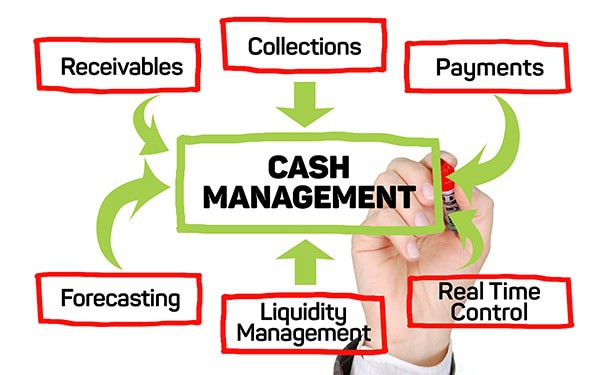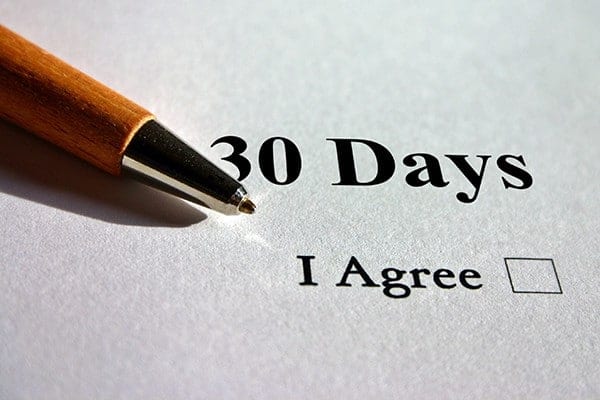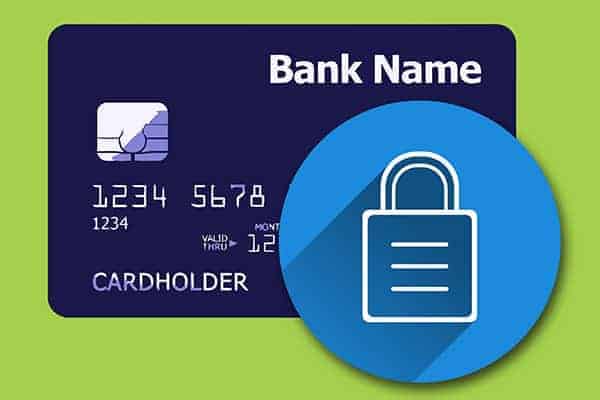
Credit Management, Cash Flow and Getting Paid
Posted on 19th October 2018 by Phil Ainley
Cash flow is the lifeblood of SMEs. It enables them to invest and expand. Without it they cannot sustain a business.
If SMEs are spending all their energy worrying about covering costs such as staffing, utilities and investment in new technologies, they cannot focus sufficiently on bringing in new business and continuing to improve.
To make the most of opportunities, they need confidence in their cash flow.
This means getting to grips with credit management. This is not always easy. It involves achieving the right balance between chasing creditors for payment and maintaining good relationships with suppliers, customers and others.
Also, it is not just a question of when you will get paid, but sometimes, whether you will receive payment at all. Bad debt can cripple a business.
The answer is for businesses to prepare themselves properly. They must put the necessary measures in place that will help ensure they get paid. These measures should also help them act in the most effective way if it comes down to chasing payment.
This special report looks at the crucial steps SMEs must take to embed effective credit management processes to help ensure their survival and ability to grow.
Paul Daine, Premium Collections
Contents
- How Well Do You Know Your Customer?
- What Are Your Payment Terms?
- Are You Invoicing Effectively?
- Can You Chase Payments?
- Are Your Reserves Running Low?
- Can You Protect Your Credit?
- Have You Run Out of Options?
- Conclusion

1. How Well Do You Know Your Customer?
You must know who you are dealing with. You need to know the person you are trading with is credit-worthy. Should things go wrong, the more you know about them, the more effectively you can take legal action, should it become necessary.
Gaining as much knowledge in advance of doing business is a sensible way of protecting yourself.
Consider these questions:
- Do you know your customer’s exact name and method of trading? The company that owns the business, which is liable for its debts, might not be same as the trading name.
- What headed paper or other documentation verifies this?
- Can you check their credit status, through an agency, and see if it matches the amount of credit they will require from you?
- Have you obtained references for them from other suppliers?
- Do the details they include on their order match the details you already have about them?
Be assertive in asking for the information you need. Check your customer’s legal status and what kind of business it is, for example a sole proprietor, limited company or partnership.
Are they signed up to the Prompt Payment Code?
Be disciplined about your own rules about what information you must have before trading, and do not deviate from them.

2. What Are Your Payment Terms?
You must not leave things to chance. Discuss and agree payment terms with your customers in advance of any work or transactions taking place.
Payment terms are essential, because if something goes wrong and someone fails to pay you on time for your product or service, then without agreed terms, how do you prove late payment?
These terms are another way of helping to shore up your cash flow.
No Surprises
Sound credit management is not about firefighting but putting measures in place to reduce the likelihood of problems occurring when it comes to payment.
Set out and agree your payment terms in advance. Do this in writing. Confirm these agreed terms before placing an order or agreeing to carry out work.
Include your right to charge a statutory rate of interest for late payment beyond the terms you have stated. It often works as an effective deterrent against late payment.
Ensure you have a standard payment terms policy in place, and clearly include these terms on all invoices.
If a customer wants a longer time in which to pay, you must decide what your policy towards this request is. You may need to decide how important their orders are to your business in the future. If they unilaterally declare they want longer to pay invoices you have already submitted, then you should demand payment based on the original terms agreed and included on your invoice.

3. Are You Invoicing Effectively?
It might sound obvious that if you do not raise an invoice then you will not get paid, but turning this into an efficient process will help keep you up to date with what people should be paying you.
The main thing to note is that invoicing must be a priority. It is the first step in helping you achieve, and maintain, the cash flow that will allow your business to run and grow.
Getting It Right from the Start
If you get your invoicing right at the start of the process, it reduces the chances of you having to spend time and energy issuing credit notes or follow-up invoices.
You should include these essentials:
- Your full name and address
- The customer’s name and address, and delivery address if different
- A description of the goods or services provided, including; where relevant, exact quantities, prices and a total amount due
- A unique invoice number, and a reference to the customer’s purchase order number, where relevant
- The method of payment, including your bank details – sort code and account number.
Include your terms and conditions with the invoice, with special reference to interest chargeable for late payment.
If you are VAT registered, your invoices must be compliant with HMRC VAT requirements.

4. Can You Chase Payments?
Completing the sale is when the customer pays you. If they fail to pay you then they are hanging onto money that should belong to you.
It is therefore important to follow up non-payment and to ask for what is rightfully yours. However, getting this right means putting the right processes in place.
Here is how you should go about it:
- Preparation is vital. Do not wait until after the due date to contact the customer. Get in touch well before this with a polite enquiry to check they have received the invoice. Check that they have no queries about it. This is good customer service on your part, and it serves as a prompt to the customer that you will be expecting payment.
- If payment fails to arrive on time, contact the customer immediately. Remember to be assertive but not aggressive. Be clear about what non-payment will mean for them.
- Remain polite, but be resolute. If a customer is a late or non-payer, then you need to follow up on what you have said you will do.
- For persistent non-payment where the customer becomes a serial offender, you should consider whether you are prepared to continue to offer them credit terms at all.
Consider payment methods. Where possible, always try to get the customer to pay by bank transfer or direct debit rather than with a cheque.
Keep all your records, including proof of delivery, copies of invoices sent, and, crucially, a record of all payments received and actions taken where this has not occurred.

5. Are Your Reserves Running Low?
Regardless of how many orders you have, or what your profit margins look like, without adequate cash flow your business will be in trouble.
If you cannot pay for your overheads, or pay your staff or suppliers, what are you going to do?
Cash flow requires a strategy. You must plan your requirements diligently, including cash forecasts that you regularly update.
Identify problems as early as you can and immediately talk to your bank or whoever is financing you. Being open early on will give you more options than if you leave it until later.
If you face difficulties paying your suppliers on time, talk to them too. You are looking for flexibility, and, again, the earlier you communicate, the more likely it is that they will grant you the room to manoeuvre.

6. Can You Protect Your Credit?
You can trade with protection against bad debt by taking credit insurance.
By reducing the risk of bad debt, credit insurance can strengthen your balance sheet and may make other forms of financing more easily available to you, including overdrafts or invoice factoring.
As a way of bringing sound credit management into your business, credit insurance can be a clear asset, and provide you with a safety net.
It also means that you get the benefit of specialist knowledge regarding detailed information on prospective customers, further helping to ensure you secure your cash flow.
This option is not for everyone, but you must weigh up the risk to your cash flow of non-payment, and whether you have the in-house credit management expertise to keep your head above water.

7. Have You Run Out of Options?
Sometimes, despite every action and process you take, you cannot get paid.
Is this the end, where you must write this off as bad debt?
You can take further action, but you must be sure you want to commit to it. For example, if your customer is insolvent, will this gain anything?
Also, you must consider the costs involved in taking any action set against the money you are owed. In other words, is it worth it?
You might consider taking legal action yourself, or via a solicitor. This route can end up costing you more, however, if you cannot recover the debt.
Professional Debt Recovery
Another option is to commission a specialist commercial debt recovery to act on your behalf.
The right agency will have the expertise, and the resources, to provide the necessary extension of your credit management process. As such, it extends this process, providing more options for recovering debt.
As with other outsourced specialisations, debt recovery works because it provides a dedicated service that is focused on achieving results.
Check that the agency you want to work with is a member of the Commercial Services Association (CSA), adhering to a strict code of conduct.
You may have got to the stage where you feel you have nothing to lose. Debt recovery can mean you have everything to gain.
8. Conclusion
Credit management is a process. The earlier you apply it, the more effective it can be in ensuring your business has the cash flow it needs.
It begins with ensuring you know as much about your customer as possible before you commit to supplying them with goods or services.
Following this, it is about setting up processes and procedures around invoicing and chasing payments and sticking to them.
You must manage your cash flow with discipline.
Of course, you cannot always protect yourself against people who simply will not pay up on time. However, this does not mean you have exhausted the possibilities for recovering the money owed to you.
Consider commercial debt recovery as a logical, effective extension of your credit management policy.
Consider your options. Think strategically and think ahead. Secure and protect your cash flow.
About the Author
Paul Daine is the managing director of Premium Collections, specialists in credit management and commercial debt recovery.
He has many years of experience in finance and compliance, with a considerable depth of knowledge when it comes to business strategy.
Paul sees his area of specialisation as a logical extension of good financial management for business, providing the necessary support to ensure SMEs have the cash flow they require to operate effectively and grow.
He believes late payment or bad debt should not be the end of the matter. Instead they mark the beginning of the next stage in the process, which culminates in the recovery of what rightfully belongs to his clients.
Premium Collections has both a national and global brief, and tailors its service to meet individual specifications of its varied client-base.
Resources
Chartered Institute of Credit Management
Related Articles:
Why Is Cash Flow a Pressing Problem for SMEs?
Exporters, Is Your Cash Trapped Overseas?
Disclaimer:
The information in this article has not been written by Caunce O’Hara & Co Ltd or any of Caunce O’Hara’s employees. None of the opinions or views contained within this article are Caunce O’Hara’s nor do we accept responsibility for any financial advice given within the article.
Caunce O’Hara & Co Ltd do not provide Life Insurance policies nor advice regarding Life Insurance or accounting and bookkeeping.
Useful Links

Professional Indemnity Insurance
Protects against claims of alleged negligence in your professional services, advice and designs.

Public Liability Insurance
Protects against claims of injury to third-parties or damage to a third-party's property.

Employers' Liability Insurance
A legal requirement for anyone employing staff. Protects your business in-case an employee is injured at work.
